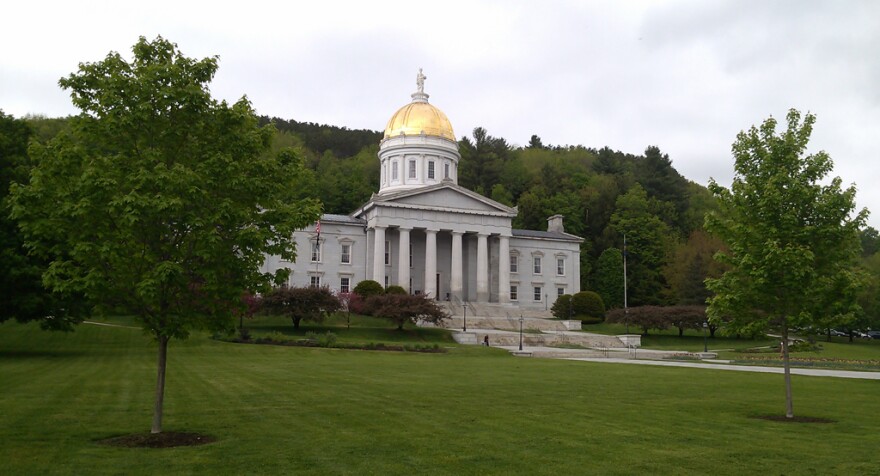The Vermont Legislature will have a veto-proof majority when the new biennium begins in January. That has environmental advocates across the state confident that some of their key policy goals will soon pass.
On election night, Vermont Democrats and Progressives, which work together on most issues, secured combined votes resulting in supermajorities in both the House and Senate. It comes as Republican Governor Phil Scott won a fourth term.
Vermont Conservation Voters Executive Director Lauren Hierl gathered representatives of the state’s leading environmental organizations to discuss what the new dynamics in the statehouse will mean in addressing environmental issues.
“Vermont voters sent a clear and resounding message that we want leaders willing to take strong action on the climate crisis. And we saw again in these election results that the climate crisis and a healthy environment are issues of high concern to Vermont voters. The candidates who questioned climate science and opposed climate action were resoundingly defeated, while the candidates who spoke about the benefits of not just doing our part on the most pressing issue facing humanity but who also recognize that acting on climate means we’re creating good paying jobs while building communities that are cleaner and healthier, more equitable and more affordable. These candidates overwhelmingly won their races.”
Vermont Natural Resources Council Energy and Climate Program Director Johanna Miller is the environmental representative on the Vermont Climate Council. She says there are tremendous benefits to acting on climate including cutting costs, enhancing public health, and creating a more equitable energy system. She says voters delivered a strong mandate to undertake such work.
“We also have a Climate Action Plan adopted last December to provide a blueprint and a roadmap for strategic action to reduce greenhouse gas pollution and build a more resilient Vermont. So that is an important foundation to do the work that Vermonters have clearly charged us to do. So now it’s time to get to work with that unprecedented slate of new elected officials and a bench of lawmakers who have already been working hard in their respective roles to make the significant progress that we need to meet our legally binding pollution reduction targets as well as help our communities adapt and become more resilient in a warming world.”
Two members of the legislature joined the advocates.
Hartford Democrat Becca White will move from the House to the Senate and Burlington Democrat Gabrielle Stebbins has been re-elected to her House seat.
Both are members of the Legislature’s Climate Solutions Caucus.
White says the election results will translate into policy victories.
“What we’ve seen from voters is a clear mandate around responding to climate change. So now it’s our job as folks who have been elected to make the case to bring those policies to the top of the priority list to our leadership. And I know that with the amount of folks who have been elected, that clear majority in the House and one in the Senate as well, we’re going to be able to make a stronger case to prioritize climate legislation.”
Stebbins expects a number of previously stalled bills to return for consideration.
“I’m very excited about bringing back the Clean Heat Standard to really help Vermonters lower the cost to heat heir home. Really excited to also look at the Renewable Electricity and Renewable Energy Standard. Particularly with all the federal dollars coming our way it’s critical to make it possible for Vermonters to capitalize on those dollars. And lastly looking really carefully at how we plan, how we develop, how we grow Vermont’s economy and what that means for our land and our water and our animals and our air quality.”
Critics have been concerned about affordability and potential negative economic impacts of some environmental proposals. White says taking action would help the state’s economy.
“The cost of doing nothing is so much greater in the long term than responding to it now. Also it will support our economic goals to be able to invest in our priorities. The most vulnerable people are going to be left behind when we talk about climate change if we don’t proactively include them in the solutions. And if folks are concerned about affordability in the short term, some of those short-term quick injection solutions that other states tried didn’t work. So we’re not going to take a short term rush to fix it approach.”
The incoming legislature is also expected to debate changes to Act 250, Vermont’s land use and development law.









